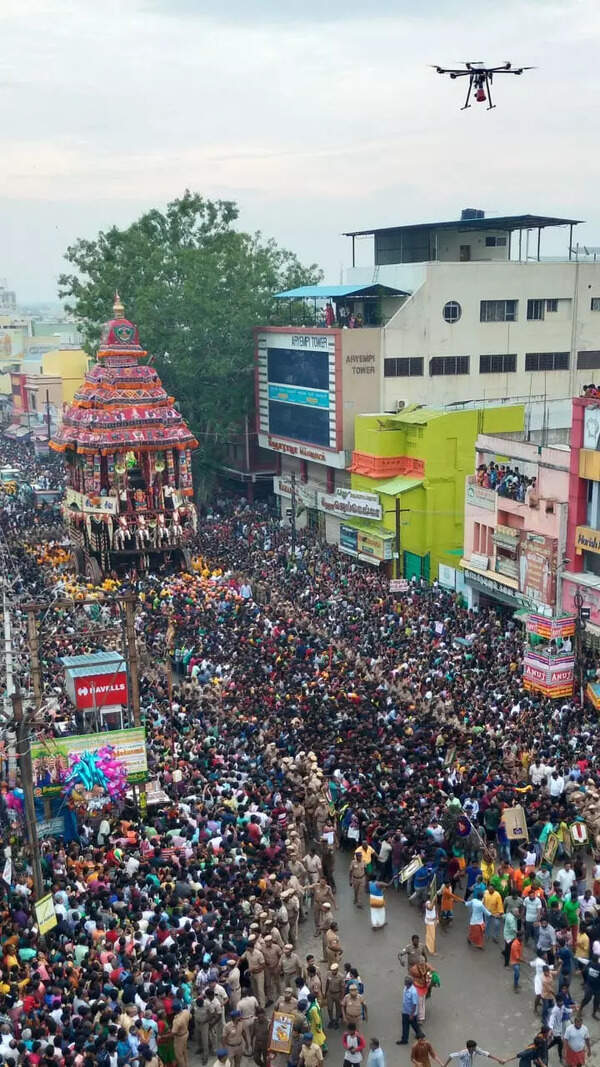- News
- City News
- ranchi News
- Note withdrawal has no impact on markets in city, say traders
Trending Topics
Note withdrawal has no impact on markets in city, say traders

Ranchi: Binay Kumar was a busy man during the days immediately following the Centre’s decision to scrap the Rs 1,000 and Rs 500 currency notes in November 2016.
A jewellery store owner in Ranchi’s Mahatma Gandhi Road, Kumar had then witnessed a sudden surge of customers at his store as the residents attempted to dispose of the scrapped currency notes by purchasing ornaments. “The price of gold and silver shot up suddenly after demonetisation as people flocked the jewellery stores. This time though, after the Reserve Bank of India’s (RBI) decision to withdraw the Rs 2,000 currency notes, there is no such trend,” he told TOI on Tuesday.
Like Kumar’s, other prominent jewellery stores in the state capital wore a deserted look. “There is no such rush this time. The marriage season is round the corner, but the jewellery pieces for the same have mostly been delivered,” Pradeep Tulsiyan, another jewellery store owner in Roshpa Tower, said.
Though the RBI has maintained that the Rs 2,000 currency notes would remain a legal tender till September end, several small-time traders in the city are refusing to accept the same from the customers. Vikram Singh, who runs a grocery store on Circular Road at Lalpur, said, “Who will visit the banks every day to get the notes exchanged? Unlike shopping malls or retail chains, we do not have hands to spare.”
Meanwhile, prominent retail, apparel and footwear stores are accepting Rs 2,000 notes from their customers, but with a caveat. “We are only accepting the notes if the customer makes a purchase of Rs 1,000 or above,” a sales executive with Sreeleathers, a footwear brand, told TOI.
Satish Chandra Pandey, the sales manager of a Sujata Chowk-based automobile showroom, said they were accepting Rs 2,000 currencies as these were legal tender. “However, the number of such notes are very less as these are not much in circulation now. The ATMs have stopped dispensing Rs 2,000 notes for the past several months,” he said.
A jewellery store owner in Ranchi’s Mahatma Gandhi Road, Kumar had then witnessed a sudden surge of customers at his store as the residents attempted to dispose of the scrapped currency notes by purchasing ornaments. “The price of gold and silver shot up suddenly after demonetisation as people flocked the jewellery stores. This time though, after the Reserve Bank of India’s (RBI) decision to withdraw the Rs 2,000 currency notes, there is no such trend,” he told TOI on Tuesday.
Like Kumar’s, other prominent jewellery stores in the state capital wore a deserted look. “There is no such rush this time. The marriage season is round the corner, but the jewellery pieces for the same have mostly been delivered,” Pradeep Tulsiyan, another jewellery store owner in Roshpa Tower, said.
Though the RBI has maintained that the Rs 2,000 currency notes would remain a legal tender till September end, several small-time traders in the city are refusing to accept the same from the customers. Vikram Singh, who runs a grocery store on Circular Road at Lalpur, said, “Who will visit the banks every day to get the notes exchanged? Unlike shopping malls or retail chains, we do not have hands to spare.”
Meanwhile, prominent retail, apparel and footwear stores are accepting Rs 2,000 notes from their customers, but with a caveat. “We are only accepting the notes if the customer makes a purchase of Rs 1,000 or above,” a sales executive with Sreeleathers, a footwear brand, told TOI.
Satish Chandra Pandey, the sales manager of a Sujata Chowk-based automobile showroom, said they were accepting Rs 2,000 currencies as these were legal tender. “However, the number of such notes are very less as these are not much in circulation now. The ATMs have stopped dispensing Rs 2,000 notes for the past several months,” he said.
Start a Conversation
FOLLOW US ON SOCIAL MEDIA
FacebookTwitterInstagramKOO APPYOUTUBE







